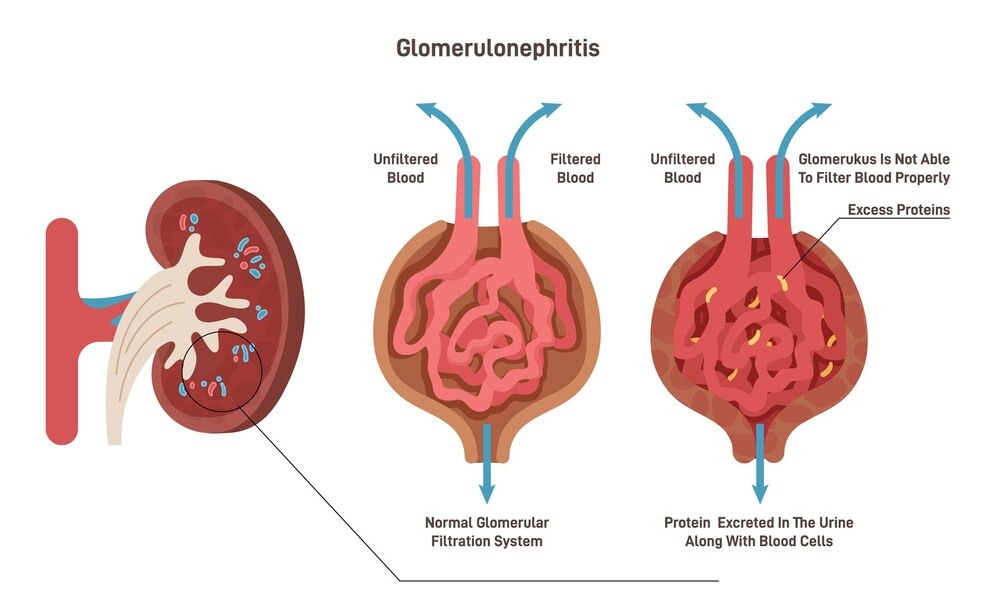Glomerulonephritis Treatment in Gurugram
Glomerulonephritis
Home - Glomerulonephritis

Glomerulonephritis
Glomerulonephritis refers to a group of conditions affecting the glomeruli, the tiny filtering units within the kidneys. These conditions can arise from various causes, including infections like strep throat or autoimmune disorders like lupus. Sometimes, the exact cause remains unidentified. Regardless, glomerulonephritis commonly results in inflammation and damage to the glomeruli, disrupting their ability to filter waste and excess fluids from the blood.
Symptoms of glomerulonephritis can vary widely and might include blood in the urine (hematuria), foamy urine due to excess protein (proteinuria), swelling in the hands and feet (edema), high blood pressure, and decreased urine output. However, some individuals might not display any noticeable signs of glomerulonephritis initially, and the condition might only be detected through routine testing or during a check-up.
Diagnosis of glomerulonephritis involves a series of steps, starting with a comprehensive medical history and physical examination. Healthcare providers often order urine tests to check for abnormalities like blood or protein. Blood tests help assess kidney function by measuring creatinine and blood urea nitrogen (BUN) levels. Additionally, imaging studies like ultrasounds or CT scans and kidney biopsies may be performed to further evaluate the kidneys' structure and function.
There are various types of glomerulonephritis, each with its distinct characteristics and causes. For instance, IgA nephropathy involves the buildup of the antibody immunoglobulin A in the glomeruli, while membranous nephropathy involves thickening of the glomerular basement membrane.
Glomerulonephritis Treatments & Surgery
A kidney biopsy is a crucial diagnostic procedure often utilized in cases of glomerulonephritis. This procedure involves extracting a small sample of kidney tissue for detailed examination under a microscope. It's instrumental in confirming the diagnosis, determining the specific type and extent of kidney damage, and guiding appropriate treatment strategies.
In the context of glomerulonephritis treatment, a kidney biopsy helps in understanding the nature of the inflammation, identifying the underlying cause (if possible), and assessing the severity of damage to the glomeruli. The results obtained from a kidney biopsy play a pivotal role in tailoring treatment plans for individuals affected by glomerulonephritis.
